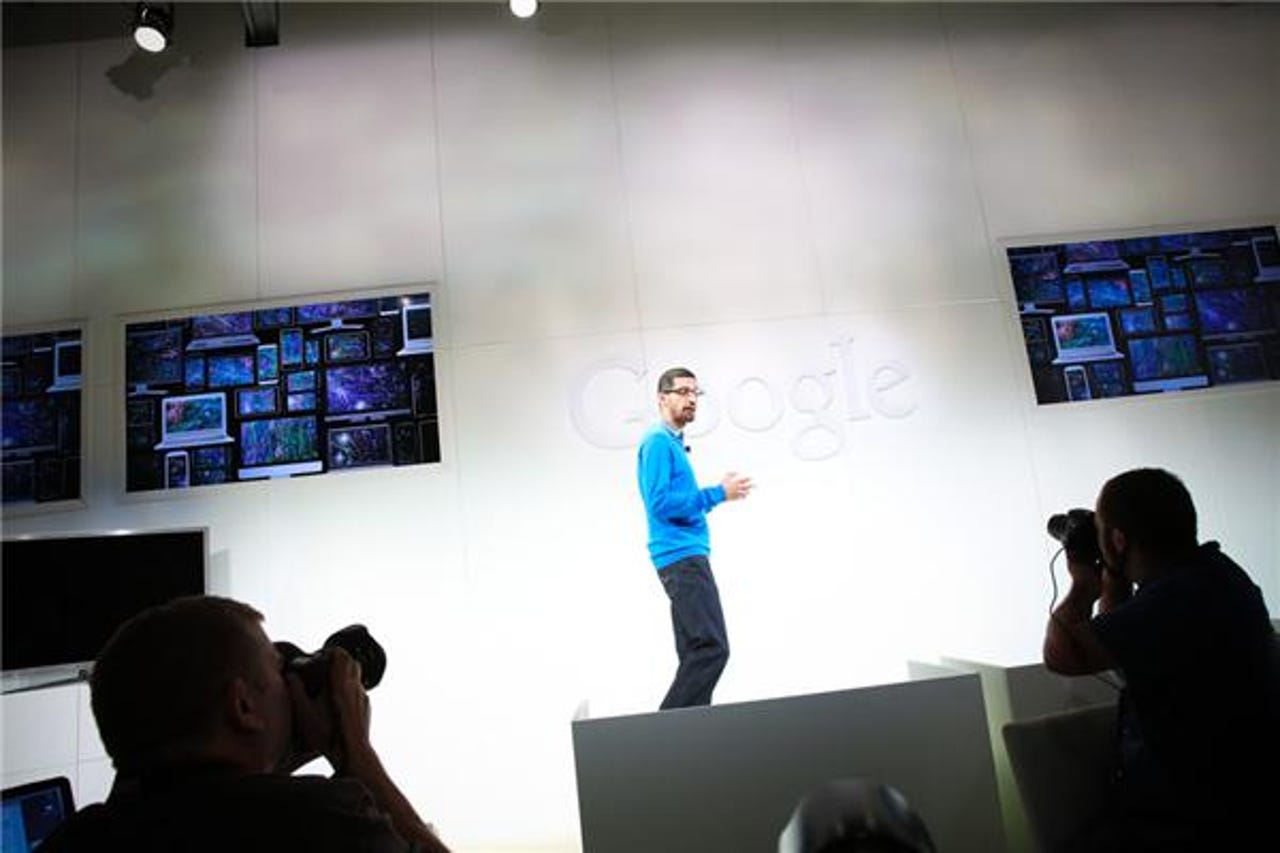Google teams with Asus on upgraded Android 4.3-based Nexus 7


SAN FRANCISCO -- Less than a week after sending out invites to the media with virtually no details other than a location, date, time and name of the host, Google unveiled on Wednesday morning what was still a terribly kept secret: the next generation of the Nexus 7.
Try these
That host was Google senior vice president Sundar Pichai, who now oversees the Android unit following Andy Rubin's departure from the department in March. Pichai continues to lead the Chrome and Apps team as well.
See also: CNET's live blog: 'Breakfast with Sundar'
Thus, given Pichai's role at Google, rumors started to run rampant that we were getting a new Nexus tablet, another Chromebook, or a new version of Android (or maybe all of the above) considering these items were virtually absent from the lengthy Google I/O keynote back in June.
The morning kicked off with the promise of both Android and Chrome announcements.
Commencing with Android, Pichai cited IDC, Gartner and internal Google data that by the end of 2013, consumers are going to buy more tablets than both consumer and corporate PCs. The forecast is 70 million activations by year's end.
Suffice to say, Google has plenty of motivation to finally treat its Nexus 7 tablet with its first major overhaul in a year since it debuted at I/O 2012.
The biggest upgrade here is the addition of long-awaited Android version 4.3, also known as Jelly Bean.
Here's a rundown on the new device made in partnership with Asus:
- Same 7.02-inch display size but with more pixels: 1,920 X 1,200-pixel resolution, or 323 pixels per inch (touted by the Android team to be the "world's highest resolution 7-inch tablet")
- 30 percent wider range of colors
- Dual stereo speakers with Fraunhofer surround sound technology
- 1.2-megapixel front camera
- 5-megapixel rear camera
- 1.5Ghz Snapdragon S4 Pro chipset
- 1.8 times faster CPU, 4 times faster GPU
- System memory doubled to 2GB of RAM
- Dual-band Wi-Fi
- Bluetooth 4.0
- 4G LTE (single U.S. model)
- HDMI output
- NFC
- Wireless charging
- Battery life: One extra hour of power compared to previous generation (up to nine hours of HD video playback and 10 hours of browsing)
- Multi-user access with restricted profiles that can control access to content and apps at a user level
- DRM APIs
- Available in three different models: 16GB Wi-Fi ($229), 32GB Wi-Fi ($269), 32GB 4G LTE model ($349) from T-Mobile, AT&T and Verizon
- Ships July 30 in stores and online in the U.S.
- International launch in the "coming weeks"
Google will also be pushing a software update (including Android 4.3) to existing Nexus (i.e. Galaxy Nexus, Nexus 4, etc.) devices over-the-air starting today.
While there is onboard storage matched with plenty of wireless access points, the Nexus 7 still heavily depends a direct source of content: Google Play.
Now counting more than 50 million downloads, Google's digital storefront for music, movies, books and apps is arguably doing pretty well.
Just in time for the back-to-school season, Google is adding a much-needed section that helps it further compete with Apple iTunes.
That is the addition of selling digital textbooks.
Set to roll out in early August, Google Play Textbooks will host digital titles from "all five major publishing houses" with the ability to purchase or rent books for up to six months with up to 80 percent off in potential discounts.
Images: James Martin, CNET